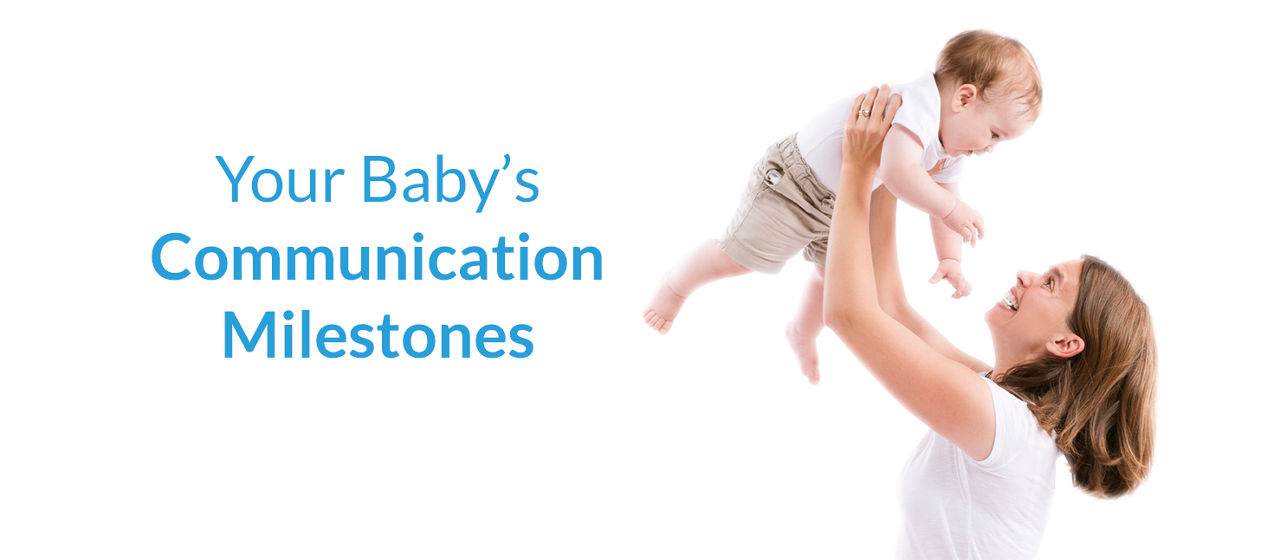Breastmilk is the best for babies. The World Health Organisation recommends exclusive breastfeeding for the first six months of life. Unnecessary introduction of bottle feeding or other food and drinks will have a negative impact on breastfeeding. After six months of age, infants should receive age-appropriate foods while breastfeeding continues for up to two years of age or beyond. Consult your doctor before deciding to use infant formula or if you have difficulty breastfeeding.
Your Baby's Communication Milestones
Communication skills grow by leaps and bounds across the first few years of life. Understanding your little one’s self-expression can be really helpful in actively responding to their needs. Learn about these milestones as your baby learns to socialise, interact, use gestures and understand words. Do take note that every baby is unique and will reach milestones at his own pace.
Six Months
- From birth to six months, your baby would have already learned a lot of ways to express himself, like staring at faces, smiling, squealing, gurgling and cooing. He would also be able to recognise his name when called by his mum or dad.
- Eventually, your baby will start attempting to imitate noises, and will love turn-taking games involving sounds.
Seven Months
- This is the time when your baby will enjoy games. You will be his favourite playmate, and he’ll love sharing his favourite toys with you too.
- He understands your tone of voice and will want to interact with you as much as possible. He’ll even try to make you laugh.
- Your baby will start babbling familiar - sounding words like Mama and Dada.
Nine Months
- Personality development will be really noticeable as your baby gets nearer to his first birthday.
- His social skills will continue to blossom, as he interacts with more people around him.
Ten Months
- Your baby will start expressing himself through an ever increasing number of words and word-like sounds. He will start using them meaningfully to let you know what he wants and how he feels about things.
Twelve Months
- You can expect responses to simple questions and commands, especially if you give your baby some clues and hand gestures.
- At this point, your baby will point to things that interest him.
- Your baby will try to gain your attention by making noises or through eye contact and facial expressions.
Tips to Develop Your Baby’s Communication Skills
- Actively respond to your baby’s looks, gestures and sounds.
- Narrate what you do as you go through your daily routine.
- Help your child develop a vocabulary for his feelings
- Copy your baby when he babbles. Not only will this encourage him to make more sounds, it will also show them how to take turns when communicating.
- Use actions with words. This will help your child relate what they see and do with language.
References:
http://www.babycentre.co.uk/l1048951/how-your-baby-learns-to-communicate
https://www.nct.org.uk/parenting/learning-words-6-12-months
Join our AptaAdvantage Club today to enjoy:
- Educational content to support you on your motherhood journey
- Various complimentary classes and exclusive discounts with our key enrichment partners
Kickstart your AptaAdvantage experience by signing up HERE.
Related articles

Connect with our team of experts
We provide advice and support for you on your parenthood journey




